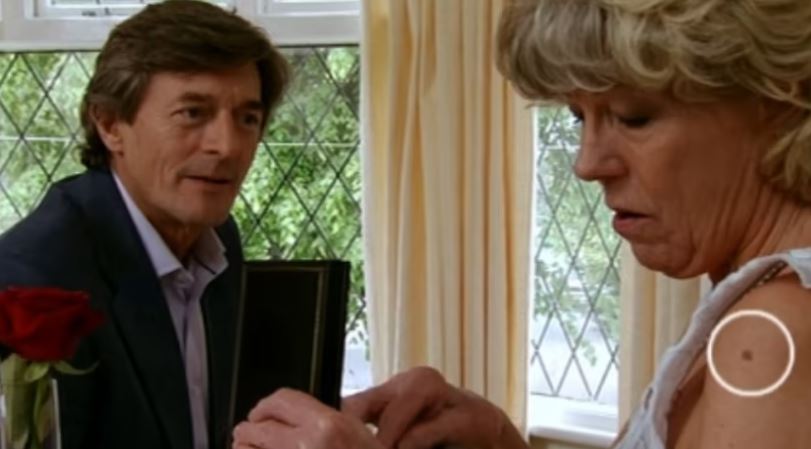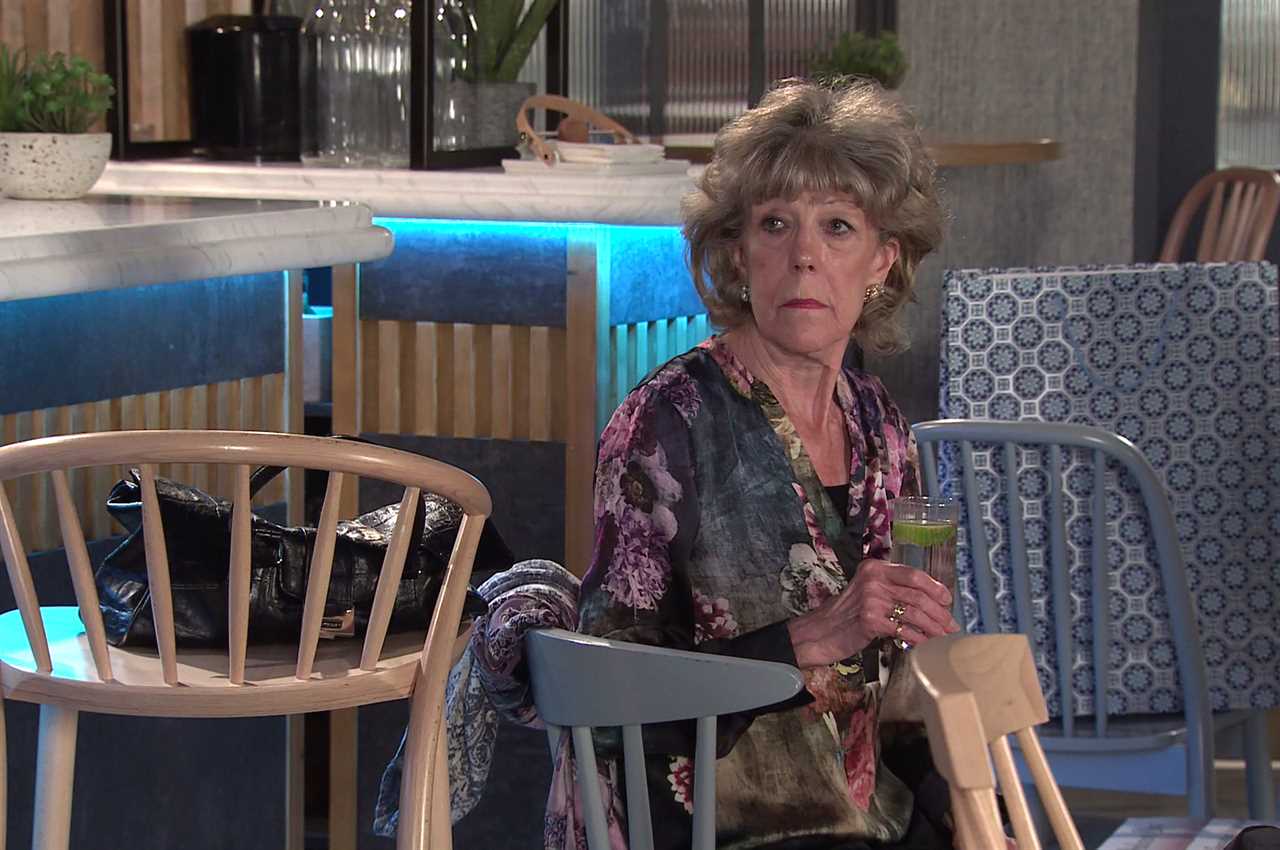MELANOMA is a dangerous form of skin cancer and it can be hard to spot.
For many people it will appear in the form of a new mole or a change in size and shape of an existing mark.


Coronation Street‘s Sue Nicholls was previously diagnosed with the illness after an eagle-eyed viewer spotted a mole on her shoulder.
The episode originally aired in 2012 and nurse Anna Bianconi-Moore had been watching at home.
Nicholls – who plays Audrey Roberts had been in a scene with Nigel Havers who at the time had been playing love interest Lewis Archer.
While the story line was gripping, it was the acting that captured Anna’s attention.
In the scene, Nicholls had been wearing a sleeveless night dress and Anna noticed a suspicious mole on her shoulder after pausing the clip.
The nurse got in touch with producers of the ITV show to alert them.
Anna said: “I noticed it was irregular in shape and had at least three different colours that I could distinguish by standing close to the television.
“These are two of the red-flag signals that distinguish the most deadly form of skin cancer – malignant melanoma. I was obviously incredibly worried for Sue, and felt I needed to do something.”
She previously told the Daily Mail that she didn’t want to come across as a deranged fan, but felt as though she had a moral obligation.
Sue took action and was told the mole was a malignant melanoma.
The mole was removed by a surgeon and following the procedure, Sue was told she would have to go back for check-ups for the next four years.
Sue previously said that because she was a teenager in the 60s, she didn’t know much about sun damage and would spend hours chasing a tan.
Now she said she’s much more careful and will still sit in the sun, but covered in sun cream.
As the summer in the UK heats up, our skin will be even more exposed – so it’s important to stay safe and that you know the deadly signs to look out for.
Skin cancer can cause a number of abnormalities – a lump or mole that can be shiny, itchy, multicoloured or scaly are just some examples.






